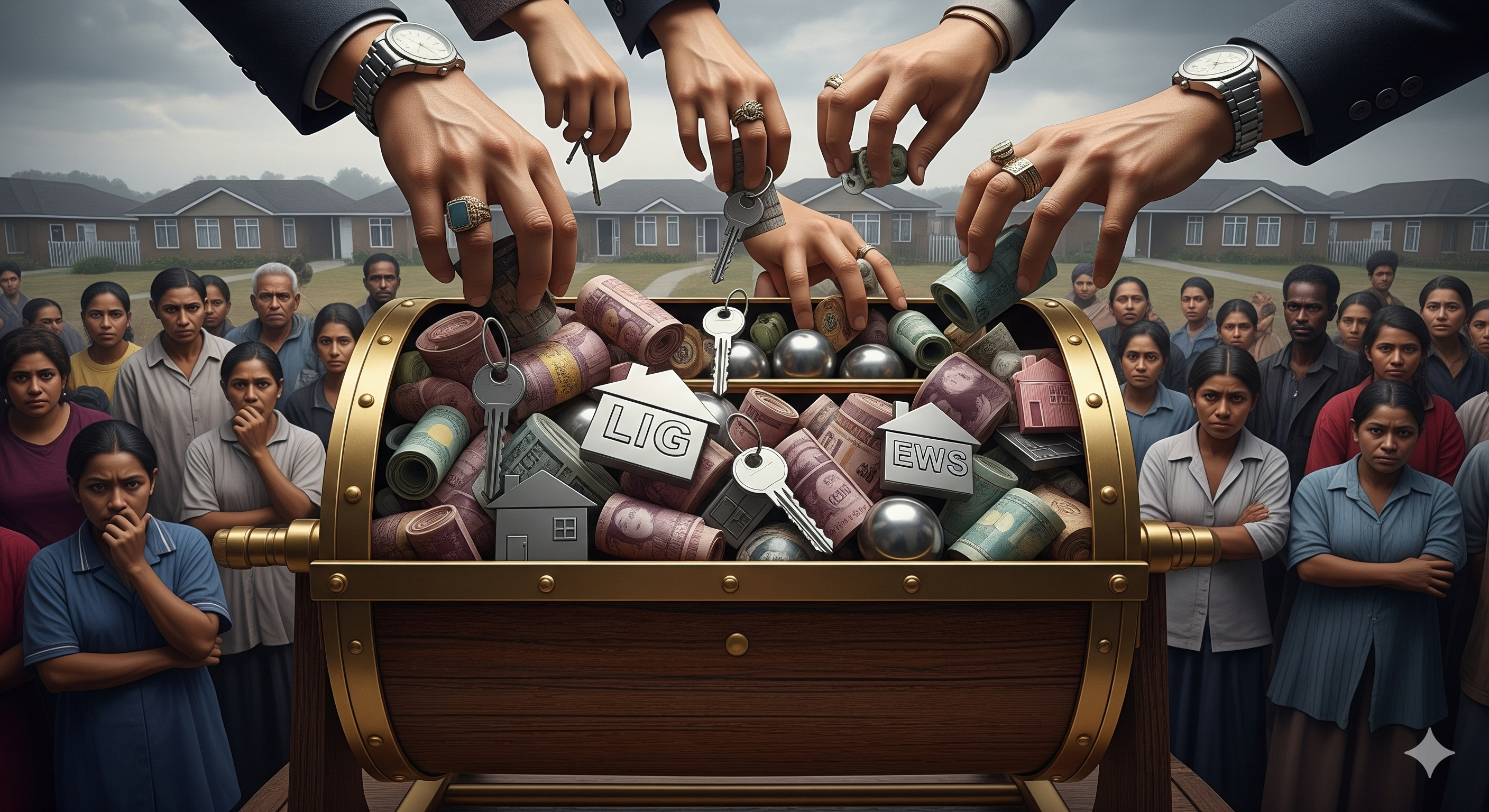
Konkan Board Lottery Sparks Row as 96 LIG, EWS Homes Reserved for MLAs and MLCs
Mumbai: The upcoming Konkan Board housing lottery, scheduled for October 9, has sparked debate after revelations that 96 homes under the lower-income group (LIG) and economically weaker section (EWS) categories have been reserved for Members of the Legislative Assembly (MLAs) and Members of the Legislative Council (MLCs).
The prices of these reserved homes range between ₹9.55 lakh and ₹52.83 lakh, making them affordable compared to market standards. However, controversy has arisen because these houses fall under categories meant for citizens with limited incomes. Under the eligibility norms, only individuals with an annual income between ₹6 lakh and ₹9 lakh can apply for LIG homes, while EWS homes are reserved for those earning even less.
Question of Income Criteria
The key point of contention lies in the fact that the current annual income of sitting MLAs and MLCs far exceeds the prescribed limits for these categories. With elected representatives drawing significantly higher salaries, critics argue that such reservations defeat the very purpose of social housing schemes.
Housing activists and urban policy experts note that these categories were designed to assist families struggling to access affordable housing in Mumbai and its surrounding regions. “The aim of LIG and EWS quotas is to provide homes to people who genuinely cannot afford property in a high-cost city like Mumbai. Reserving these homes for MLAs and MLCs creates a clear mismatch between intent and execution,” one housing rights advocate observed.
Clarification from Authorities
Konkan Board CEO Revati Gaikwad has clarified that the allocation does not necessarily mean these houses will go to legislators. According to her, if no applications are received from the reserved quota, the homes are later opened up for other categories. This process, she explained, ensures that housing stock does not remain unsold and ultimately benefits the wider public.
However, this explanation has not entirely eased concerns. Observers point out that while the rule may exist, the initial act of reserving EWS and LIG homes for legislators sends a contradictory message about fairness and inclusivity in public housing policy.
Wider Debate on Housing Policy
The issue has reignited discussions about the need for more transparent and socially equitable housing schemes. Mumbai, already one of the most expensive housing markets in the world, faces a massive demand-supply imbalance in affordable housing. For many citizens in the ₹6 lakh to ₹9 lakh income bracket, securing a flat through a housing lottery remains their only realistic hope of homeownership.
Experts argue that instead of extending EWS/LIG quotas to elected representatives, government housing boards should focus on expanding availability for economically disadvantaged groups. At the same time, they recommend designing separate schemes for public servants and legislators if needed, rather than merging them with categories meant for ordinary citizens.
The Road Ahead
As the October 9 lottery draws closer, the controversy continues to generate discussions in policy circles and among citizens alike. While the Konkan Board maintains that unsold homes will eventually be redirected to other categories, the reservation itself raises questions about the alignment of housing policy with social justice principles.
For Mumbai’s aspiring homeowners—especially those belonging to lower-income groups—the larger concern remains whether such practices dilute their chances in a system already strained by high demand and limited supply.
The episode highlights the delicate balance between governance, privilege, and social equity in India’s urban housing landscape. Going forward, how authorities handle such reservations could set an important precedent for the credibility of public housing schemes.





